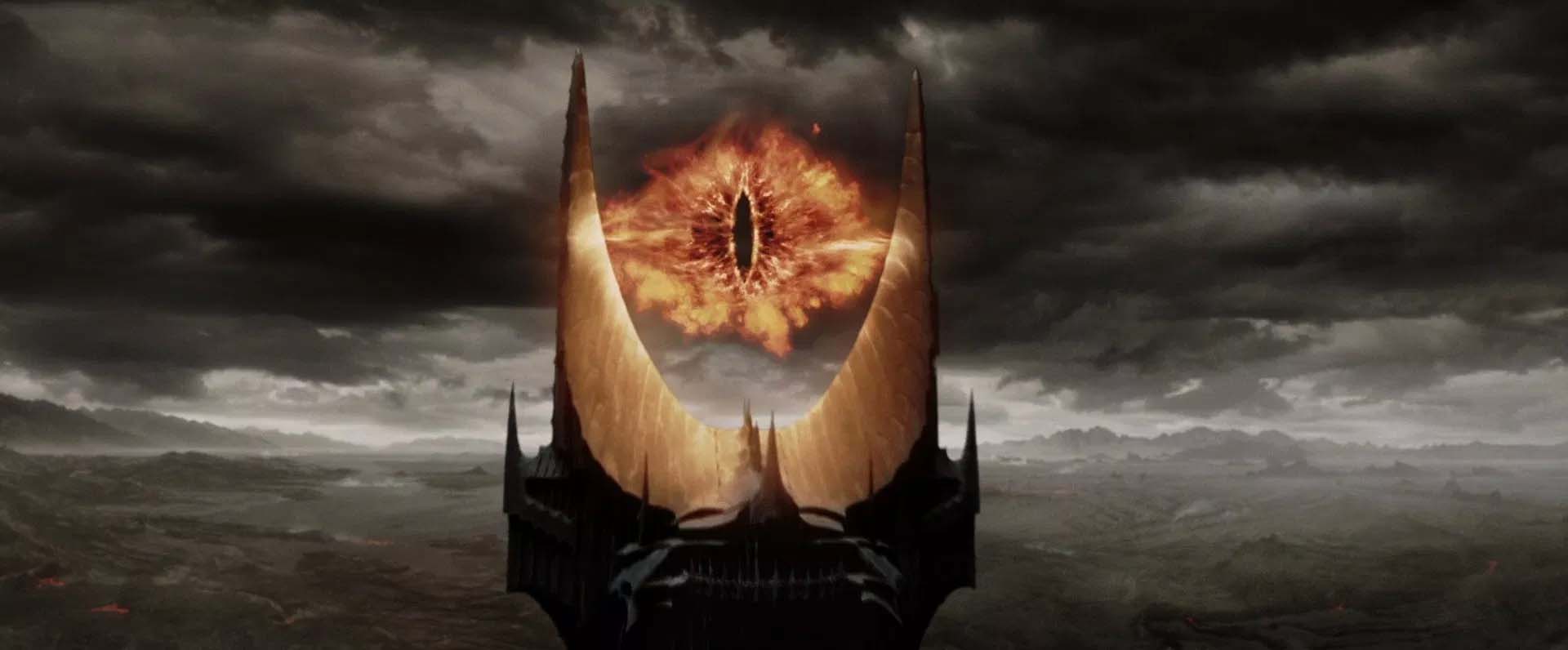|
Fiction has given us some memorable bad guys over the years. Where would Harry Potter be without Voldemort, or Sherlock Holmes without Professor Moriarty? Villains fascinate and challenge us. And they’re usually ten steps ahead of our heroes. The sci-fi villain has a high-tech surveillance system and the fantasy villain has a crystal ball. Somehow or other they find out what’s going on and plan accordingly. Sometimes a villain can come across as a mastermind. The Dark Lord Sauron, from J.R.R. Tolkien’s The Lord of the Rings, is a real schemer. As the fires burn in the depths of Mount Doom and the billowing shadow stretches across the sky from the land of Mordor, Sauron broods over his plans. He has but one goal. His whole will is bent on seeking his lost treasure: the One Ring to rule them all. With it he can subdue the world. If the Ring is destroyed, so is he. Conveniently, Sauron is in possession of Mount Doom, the only place where the Ring could be destroyed. And yet this so-called mastermind fails to take a few simple measures to protect himself, such as sealing the giant door on the side of the mountain or placing a few monstrous creatures to stand guard. How does Sauron make such a fantastic blunder? And how is he distracted by a puny army knocking at his front gate? Let’s find out. 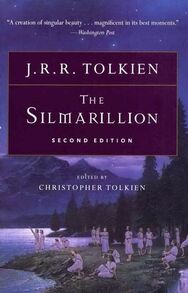
Tolkien’s book The Silmarillion covers the history of Middle-earth before The Lord of Rings, including Sauron’s origins. It turns out there was another dark lord before Sauron named Melkor, a heavenly being who sought to corrupt and wage war against creation, especially elves and humans. When his malice was revealed, Melkor came to be called Morgoth, a name you’ll remember if you, like me, have watched The Fellowship of the Ring movie more times than you care to admit. After Gandalf falls to a fiery Balrog in the Mines of Moria, Legolas calls the creature "a Balrog of Morgoth." A servant corrupted by the first dark lord. The new dark lord, Sauron, was also a servant of Morgoth at one time.
Sauron, also a heavenly being like Morgoth, though less powerful, learned a thing or two from his dark master. Morgoth sought to gain the advantage over his enemies by infiltrating their ranks with spies. He would capture wandering elves in hopes of turning them over to his side. Some he tortured, and "some he so daunted by the terror of his eyes that they needed chains no more, but walked ever in fear of him, doing his will wherever they might be." Soon Morgoth had eyes everywhere, allowing him to anticipate any move made against him.
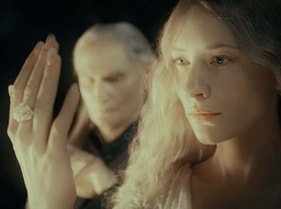
Morgoth was eventually defeated, but Sauron managed to elude capture. In secret he continued to plot and plan his rise to power. It was then that the idea came to him—the One Ring. Such an object would give him the rule of Middle-earth. He also created rings as gifts for the elves, dwarves, and men in a plot to invade their thoughts and corrupt them. But when Sauron placed the Ring of Power on his hand, the elves instantly sensed his presence. Rather than allowing the dark lord to delve into their minds, and so expand his system of surveillance and control, the elves removed their own rings for a time until Sauron was defeated in a great battle and the Ring was taken by Isildur, son of Elendil. Thus ended the Second Age of Middle-earth.
The Lord of the Rings begins in the Third Age when Sauron seeks to return. While most of the residents of Middle-earth are blissfully unaware of what’s going on, Sauron is directing his servants far and wide in search of his prize. Sauron’s servants capture the creature Gollum and bring him back to Mordor to be tortured. Gollum reveals that the Ring is in the Shire, which kicks Sauron’s efforts into high-gear. He sends his hooded riders, the Ringwraiths, to travel by stealth into Hobbiton itself and take the Ring by force. After all, what can little hobbits do against the mighty Nazgûl, led by the Witch-king of Angmar? But it would appear that hobbits have a stealth of their own. Somehow they slip out of Sauron’s clutches and find safety with the elves of Rivendell. Temporarily, of course. It becomes increasingly obvious that Sauron has another plan up his sleeve, a plan long in the making. He has secretly been preparing for war to conquer the free peoples of Middle-earth. Everywhere our heroes turn they find that Sauron has moved ahead of them. The wizard Saruman joins the enemy and sends his Uruk-hai troops streaming out from Isengard, Rohan’s King Théoden falls under Saruman’s spell, Gondor’s steward Denethor succumbs to despair, the city of Osgiliath falls to an army of orcs, the Ringwraiths regroup and mount up on terrible flying beasts, and Sauron continues to draw together numerous allies from the south on both land and sea. The hosts of Mordor are not to be trifled with. 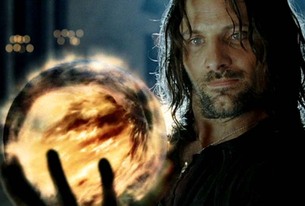
Yet there is one thing Sauron fears. He knows that his Ring has been found and believes this can only mean that his enemies plan to use it as a weapon against him. So you can probably understand Sauron’s concern when he sees someone like Aragorn arise, the heir of Isildur, bearing the sword that cut away Sauron’s Ring and defeated the Dark Lord all those years ago. Aragorn uses a seeing stone called a palantír to make himself known to Sauron. Though it is doubtful Aragorn would be able to harness the full power of the Ring, the possibility of a real challenger sows doubt in Sauron’s mind. Legolas says that he himself "looked on Aragorn and thought how great and terrible a Lord he might have become in the strength of his will, had he taken the Ring to himself. Not for naught does Mordor fear him."
Aragorn does exactly what Sauron expects him to do. He leads his forces right up to Mordor’s Black Gate and challenges the Dark Lord to fight against him, all but confirming Sauron's suspicion that Aragorn carries the Ring of Power. Who else would be foolish enough? Only the Ringbearer would dare to unseat Sauron by force. Aragorn appears to have rashly cobbled together his remaining armies, trusting the Ring to tip the balance in his favour. In Sauron’s mind, Aragorn poses a real threat. After all, it was a son of Elendil who defeated Sauron on the field of battle long ago. Now Aragorn, another son of Elendil, comes against him. Sauron's only hope is to strike out with overwhelming force before the men of Gondor have recovered from his devastating assault on Minas Tirith, and before Aragorn has gathered himself into his full strength. 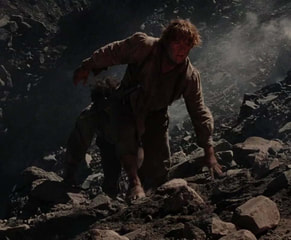
Meanwhile, the reader of the story has known something for a long time which has escaped the enemy’s mind. Sauron the All-Knowing, the master of spies and surveillance, symbolized by the piercing Eye of Sauron wreathed in flame, claims to see everything. But there is one thing he does not anticipate. There is something else he should have feared as much as he feared the strong will of a challenger. He should have feared the faithful obedience of a humble heart.
Sauron never suspects that his enemy might seek to destroy the Ring of Power. If found, no one could possibly resist the temptation to use it. To instead destroy it? The thought never enters into Sauron’s mind and so he fails to guard against it. He never guesses that Aragorn's attack is a distraction--an act of sacrifice, rather than pride. While Sauron is bearing down on Aragorn’s army, the reader can plainly see that the only real threat to his power is slowly making its way into the bowels of Orodruin, the mountain of fire. Yet Frodo and Sam are simply too small and insignificant to catch the Dark Lord’s eye. Sauron is plagued by the same flaw that leads the steward Denethor to despair and the wizard Saruman to capitulation. They know just enough to think that they know everything. Sauron knows how humanity is weak and easily corrupted, and concludes that victory is a matter of military might. Through the palantír Denethor and Saruman see the overwhelming forces of Mordor gathering and conclude that resistance is futile, unless of course the power of the Ring is found and harnessed against Sauron. But unbeknownst to all of them, the real battle does not take place in front of the Black Gate of Mordor, with a flourish of war horns and a clash of swords and spears. The real battle is a quiet affair. It rages invisibly in the hearts of two hobbits faithfully carrying out their mission. While Sauron understands that violent force is a sure path to victory and domination, he overlooks the chance that an act of selflessness might turn the tide.
Comments
|
David Raphael HilderJoin the conversation as we explore the best there is in fantasy, sci-fi, adventure, and of course, the classics Archives
December 2020
Categories
All
|

